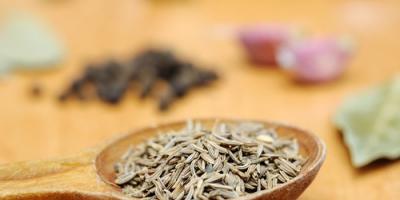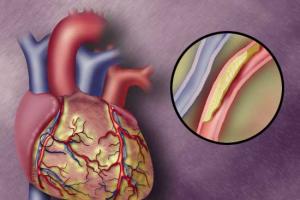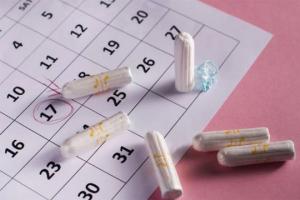During gestation, almost every woman is faced with the problem of "bad" teeth. The condition of the teeth worsens even in those women who did not have dental troubles before pregnancy. Why is it possible to do dental treatment during pregnancy? How to protect teeth during childbearing and does dental health affect the course and development of pregnancy?
How does pregnancy affect dental health?
It is during the gestation period that the condition of the teeth deteriorates sharply. And this is connected, by no means, with the well-known postulate: "the child takes calcium from the teeth to build his skeleton", which is fundamentally wrong, but with a powerful hormonal restructuring that begins from the moment of conception.
Increased leads to increased blood supply not only to the uterus, but also to other organs, as well as gums. As a result, the gum tissue softens and becomes loose, which facilitates the penetration of microbes into the gums and teeth and contributes to the development of gingivitis, stomatitis and exacerbation of caries.
Gingivitis without timely treatment easily turns into periodontitis, which is dangerous not only for the loss of a tooth or teeth, but also for the loss of pregnancy. In addition, hormonal changes affect the amount of saliva and its acidity. During pregnancy, there is increased salivation and a shift in the pH of saliva towards acidity, which contributes to the thinning of tooth enamel and the multiplication of microbes. As a result, caries develops and progresses rapidly.
Toxicosis also affects the condition of the oral cavity and teeth in particular. Nausea and vomiting also play a role in shifting the pH of saliva, leading to the loss of minerals (fluorine, calcium, phosphorus, magnesium), which causes demineralization of the teeth (thinning of the enamel) and the progression of caries.
Changes in taste during pregnancy also play an important role, the consumption of large amounts of simple carbohydrates, which are quickly broken down in the oral cavity, serves as a catalyst for the multiplication of bacteria and the spread of caries (both deep into the tooth and to neighboring teeth).
Changes in the composition and pH of saliva, as well as a weakening of immunity during gestation, also affect the formation of plaque. If you do not carry out the prevention of diseases of the oral cavity during gestation, leave unattended plaque, then it quickly transforms into tartar, which is also fraught with tooth loss. In addition, plaque is one of the predisposing factors for the development of gingivitis.
What affects dental health?
However, not all pregnant women's dental health deteriorates dramatically. Someone loses several teeth in 9 months, while someone maintains a healthy and snow-white smile before and after childbirth. What is it connected with? Dentists, in addition to the mandatory hormonal changes that occur during the period of gestation, also distinguish a number of predisposing factors that provoke diseases of the oral cavity and teeth:
genetic predisposition
Heredity is not the last place in the state of the teeth. If the parents of the expectant mother had problems with their teeth at a young age, most likely she could not avoid dental pathology during pregnancy.
Failure to follow the rules of oral hygiene
During the period of gestation, a woman should especially carefully monitor and care for her oral cavity. This is not only a double brushing of teeth, but also regular (at least 3 times during pregnancy) visits to the dentist, identifying the first signs of caries and its active treatment, taking vitamin and mineral complexes indicated for pregnant women and following the rules of healthy eating.
The presence of chronic somatic pathology
Existing chronic diseases of the digestive tract (enteritis, gastritis, colitis), endocrine pathology (diabetes mellitus, thyroid disease), bone and joint pathology (arthritis and arthrosis, osteoporosis) lead to, it is not absorbed by the body in the required dosage, which aggravates the condition of the teeth, contributes to their demineralization and the development of dental diseases.
Bad habits
It is regrettable to talk about it, but not all pregnant women are able to give up bad habits for the sake of the unborn baby. Smoking affects the acidity and composition of saliva, which has undergone changes not for the better during pregnancy, and alcohol intake disrupts the absorption of minerals necessary for healthy teeth. Also, do not forget about the habit of cracking nuts or strong caramels, which is traumatic not only for the fragile teeth of a pregnant woman, but also for an ordinary person.
Constant stress
During stress, a hormone, cortisol, is released into the blood in large quantities, which reduces the already weakened immunity of the expectant mother. Reduced immunity "plays into the hands" of pathogenic bacteria, including those living in the oral cavity, which contributes to the flourishing of dental diseases. And pregnant women, as you know, are emotionally labile, any seemingly trifle for them turns into a serious stressful situation, as a result of which both the state of health in general and the condition of the teeth in particular deteriorate.
Are pregnancy and dental treatment compatible?
Many women still do not know whether teeth are being treated during pregnancy or not. Yes, teeth during the gestation period are not only possible, but also necessary to be treated, especially if a woman has not taken care of their health in advance. Carious teeth, gum disease and oral cavity are sources of chronic infection, in particular staphylococcus aureus, which is very dangerous for the unborn child.
In almost every third woman who has a chronic focus of infection in the body during pregnancy, the fetus becomes infected, and bad teeth in this situation play an important role. Pathological bacteria from carious or decayed teeth, along with food, enter the gastrointestinal tract, from where they enter the bloodstream and spread throughout the body.
Not only can the pathology of the oral cavity lead to the development of sepsis, but it will certainly affect the course of pregnancy, growth and development of the fetus. Caries and other dental diseases predispose to the occurrence of gestosis, cause infection of the membranes, waters and fetus, which is especially dangerous in the first trimester, when the placenta is not yet formed and pathogenic microorganisms easily penetrate the fetus. This can provoke a threatened abortion, and even spontaneous abortion.
In the later stages, bad teeth can cause premature birth, the birth of a weakened, underweight child with diseases of the digestive and respiratory systems, skin, and reduced immunity.
In addition, carious teeth in a woman pose a danger to the baby even after the end of pregnancy (birth), since close contact between mother and child cannot be avoided (breastfeeding, kissing, etc.).
Optimal timing for dental treatment
Ideally, dental rehabilitation, as well as chronic gynecological and somatic diseases, should be carried out even at the stage of pregnancy planning. A woman should take the upcoming pregnancy seriously, because any focus of chronic infection in the body is a potential threat to the fetus. But, as a rule, either pregnancy happens unexpectedly, or the expectant mother neglects the examination during the planning period.
It doesn’t matter what condition a woman’s teeth are in, in addition to passing various tests, she will be required to consult a dentist already when registering for pregnancy. A repeated preventive examination of the dentist is scheduled before going on maternity leave, that is, at 30 weeks, and the last time you should see a doctor at 36 weeks. But if a woman has problems with her teeth and oral cavity, then more frequent visits to the dentist cannot be avoided.
Dental treatment during pregnancy
First trimester
The first trimester lasts from the moment of fertilization and implantation of the egg to 14 weeks. This is the most crucial stage of pregnancy, because it is at this time that the laying of all organs and systems of the baby takes place. The placenta, as you know, completes its formation at 16 weeks, so dental treatment at the indicated time is not desirable, since the protective function of the placenta is not yet fully expressed and the embryo is vulnerable to drugs.
In addition, the first trimester accounts for the maximum number of critical periods for the threat of abortion (a visit to the dentist is always stressful not only for a pregnant woman, but also for an ordinary person). But the exception is the situation when the teeth hurt in the early stages. In this case, emergency procedures are carried out (removal of the “nerve” or the tooth itself) after consultation with the attending obstetrician and taking into account the risk of exposure to drugs on the fetus.
Second trimester
The second trimester (14-26 weeks) is considered the most favorable period for dental therapy. The laying of organs has already taken place, the placenta has formed and is actively functioning, the psycho-emotional state of the pregnant woman is quite stable. At this time, it is recommended to carry out all the necessary preventive procedures and, if necessary, therapeutic (tooth extraction, filling).
third trimester
Dentists do not recommend undergoing dental treatment in the third trimester. Firstly, the uterus is already so enlarged in size that, in a horizontal position on a dental chair, it compresses the inferior vena cava and aorta, which worsens uteroplacental blood flow, and, in addition, sharply reduces blood pressure and provokes the development of acute vascular insufficiency (fainting) . In addition, the uterus in the last stages of gestation is very sensitive to external stimuli, which can result in premature birth, and the physical strength and psycho-emotional state of the pregnant woman are significantly depleted.
Acute toothache
It is difficult to find a person who has not experienced acute toothache at least once in his life. Especially not excluded is the situation when a tooth hurts during pregnancy - what to do in this case? First of all, you need to contact the dentist (appear for an appointment or, in extreme cases, call). To soothe a toothache, if it is not possible to immediately visit a doctor, some folk remedies will help, having previously eliminated irritating factors (stop eating, gently brush your teeth):
Rinsing
Rinse your mouth with warm (not hot) water with the addition of soda or sea salt, or a decoction of medicinal plants (mint, chamomile, oak bark, St. John's wort flowers - whatever is at hand). Rinsing is more effective the more often and longer it is carried out (every 30 - 60 minutes).
Applying tampons
Attach a cotton swab soaked with fir, cloves to the gum or “apply a mask” of propolis on the painful area of the gum.
Applications with onion and garlic, with lard
Apply gruel of finely chopped onion and garlic (antiseptic action), mixed with salt, to the diseased tooth and gum. Applications from fat - attach a small piece of unsalted lard to the gum from the side of the cheek.
If alternative methods have not brought relief, you can use (preferably after consulting a doctor) some medications:
- paracetamol (safe during pregnancy) - take no more than 4 tablets / day;
- - antispasmodic, effectively relieves toothache, 2 tablets no more than 3 r / day;
- spazmalgon - eliminates only mild pain, taking 1 tablet no more than 3 times a day;
- nurofen (active substance) - has an anti-inflammatory and analgesic effect, take 0.2 - 0.6 g each. three times a day.
Future mothers should remember that no matter how strong the toothache is, it is not allowed to warm up the painful area (it is fraught with periostitis - flux), take alcohol and aspirin, and, moreover, apply an acetylsalicylic acid tablet to the gum (there will be an "aspirin" burn).
Dental filling in pregnant women
Expectant mothers are very worried about the question: “Is it possible to fill teeth while waiting for a child?”. The answer is unequivocal - if there is such a need, then it is necessary to put a filling, since a tooth “with a hollow” during pregnancy can completely collapse and after childbirth it turns out that there is nothing to fill. If the caries of the teeth is superficial or medium, then its treatment will fit into one visit to the dentist, which does not even require anesthesia.
In the presence of deep caries, the doctor, using a drill, mechanically eliminates (reams) dead and destroyed areas and first installs an arsenic-free paste that will “kill the nerve”, that is, cause necrosis and dissolution of the pulp, then put a temporary filling.
After a few days, the temporary filling is opened and depulpation is performed, followed by the installation of a permanent filling. During pregnancy, it is allowed to use all types of fillings, including light-cured ones. Treatment of deep caries is very painful and is performed under anesthesia.
Anesthesia of teeth in pregnant women
For many, the fear of visiting the dentist is associated with the fear of pain during medical procedures. Dental anesthesia during pregnancy is quite acceptable and even recommended. Fear and pain not only deliver a lot of unpleasant minutes, but can also cause uterine hypertonicity. Anesthesia is carried out before drilling the tooth, removing the pulp or other manipulations on the pulp and before extracting the tooth.
In the treatment of pregnant women, only local anesthesia is used (even for ordinary patients, general anesthesia is not desirable due to the high risk of complications). Currently, dentists use local anesthetics that do not penetrate the placental barrier and have a reduced concentration of vasoconstrictor substances (and some do not have them at all). For anesthesia in pregnant women, Ultracaine and Ubistezin are used. Before an anesthetic injection, the gum is treated with novocaine from a spray (saliva should be spit out).
It is important to remember that women preparing to become mothers should notify the dentist about their pregnancy and due date.
Extraction of teeth in pregnant women
If the tooth cannot be saved, then the question arises of its removal. Tooth extraction during pregnancy is postponed for the 2nd trimester, but if an emergency situation arises, then tooth extraction is carried out at any time. Removal is carried out under local anesthesia and after x-rays. To avoid possible complications, it is important to follow the doctor's recommendations after tooth extraction and in no case warm the wound surface.
Of particular note is the removal of a wisdom tooth. In pregnant women, this operation is undesirable, since it is technically more complicated and often accompanied by complications (fever, inflammation, which requires antibiotics). Therefore, whenever possible, the removal of wisdom teeth is postponed until the postpartum period.
X-ray of teeth
Probably, not only future and real mothers know about the dangers of x-rays for the fetus, so they try to exclude x-rays during pregnancy if possible (except for emergency situations). But when undergoing treatment at the dentist, it may be necessary to conduct an X-ray of the tooth, including during pregnancy (before tooth extraction or filling of dental canals). If it is possible to postpone dental treatment until the second trimester, it is advisable not to take x-rays in early pregnancy.
But, in fact, an x-ray of a tooth is not as dangerous as the possible consequences of an untreated tooth for a future baby. Moreover, the irradiation is point, aimed only at the maxillofacial surface, and the neck, chest and stomach of a woman are reliably protected from irradiation by a lead apron. To date, many dental clinics are equipped with special devices - radiovisiographs, with the help of which the exposure time, and, accordingly, the radiation dose is reduced tenfold (radiovisiography is optimal for examining pregnant women and children).
Dental prosthetics
While waiting for the birth of a baby, many women have free time, and, accordingly, the question arises: “Is it possible to “make” teeth during pregnancy?”
Dental prosthetics at this stage of life has no contraindications, procedures performed by an orthopedic dentist do not cause concern and are absolutely safe for the fetus. The only thing you should refrain from during the gestation period is dental implantation. Engraftment of a tooth requires a large amount of energy from the body, which is necessary for the growth and development of the child. In addition, for better engraftment of implants, drugs that suppress the immune system are often prescribed, which is absolutely contraindicated for pregnant women.
oral care
It is important to take proper care of the oral cavity during pregnancy:
- Brush your teeth at least 2 times a day, preferably after every meal.
- To remove plaque and pieces of food from hard-to-reach places, you should use dental floss (floss).
- Choose a toothbrush with soft or medium hard bristles of different lengths.
- Brushing your teeth should last at least 3-5 minutes, and capture all surfaces (anterior and palatine, chewing), and brush movements in the horizontal and vertical directions.
- Don't forget the surface of the tongue.
- It is better to choose a toothbrush with an elastic head, and change it every 2, maximum, 3 months.
For pregnant women, special toothpastes are also available, which are sold in pharmacies. Suitable pastes for expectant mothers: 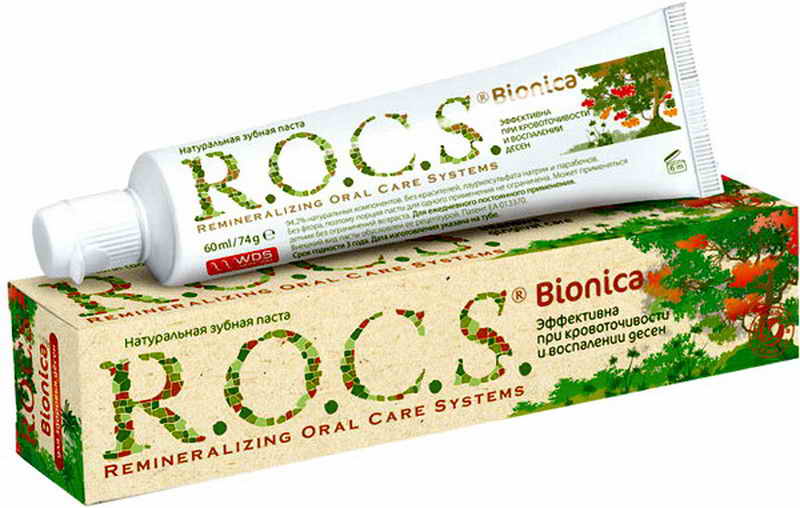
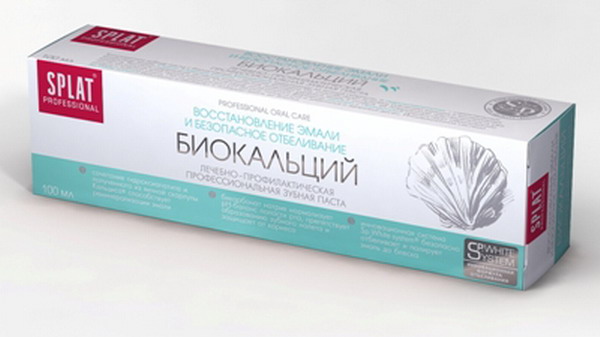
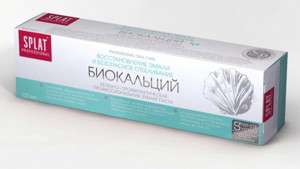
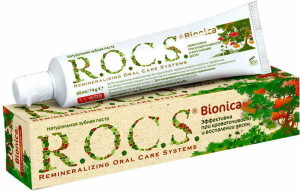
- Pregnant 9 months;
- Bionics green;
- Splat organic;
- Splat biocalcium.
When buying another paste, you should carefully study its composition. Toothpaste for expectant mothers should not contain:
- sodium lauryl sulfate and sodium loret sulfate (causes irritation of the mucous membrane and accumulates in the body)
- triclosan (antibacterial action, destructive not only for dangerous, but also for beneficial bacteria)
- fluorine and fluoride are by and large useful, but toxic in high concentrations, so their content should be no more than 0.1 - 0.6% of other substances
- abrasive substances such as silicon dioxide and calcium carbonate in high concentrations, in addition to plaque, scrape off enamel, so the degree of abrasiveness should not exceed 25 units.
- you should not use whitening toothpaste (for smokers), and you should also give preference to toothpastes marked "hypoallergenic".
Rinses - as an addition to brushing your teeth, rinsing with dental elixirs or home remedies (an infusion of oregano, St. John's wort and mint) is used.
Chewing gums- If nausea and vomiting are disturbing at the beginning of pregnancy, it is recommended to use chewing gums with xylitol or without sugar to neutralize the acidity of saliva. After each bout of vomiting, rinse your mouth with warm soda solution and, if possible, brush your teeth.
Proper nutrition- it is advisable to exclude sweets and confectionery, sweet carbonated drinks and store-bought fruit juices from the diet, replacing them with fresh fruits and mineral water. The diet should be dominated by foods high in calcium (milk, cottage cheese, kefir, eggs, cheese, nuts), vitamin D and phosphorus (cod liver, sea fish, seafood).
Do not neglect the intake of vitamin-mineral complexes, which include calcium (Pregnavit, Elevit). But you should refrain from additional intake of calcium preparations (its excess causes premature aging of the placenta and early ossification of the seams of the fetal head).
In order to prevent the development of gum disease, massage should be carried out (the gums are massaged with a finger with a small amount of toothpaste, every day for 5-7 minutes).
The future dad should also treat all the teeth before the birth of the child, because then there will be close contact with the newborn (hug, kiss, swaddle, play).
Obstetrician-gynecologist Anna Sozinova


